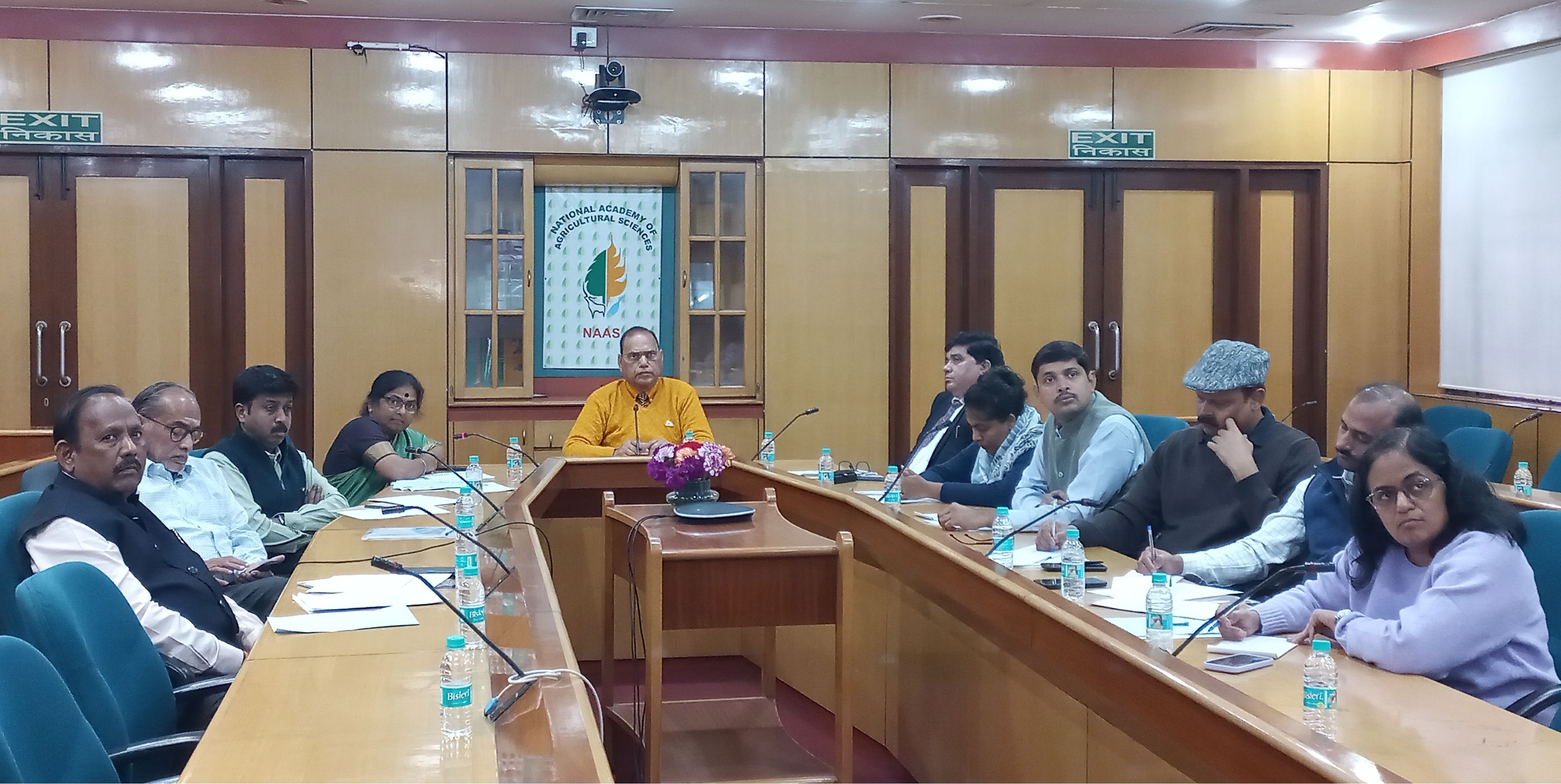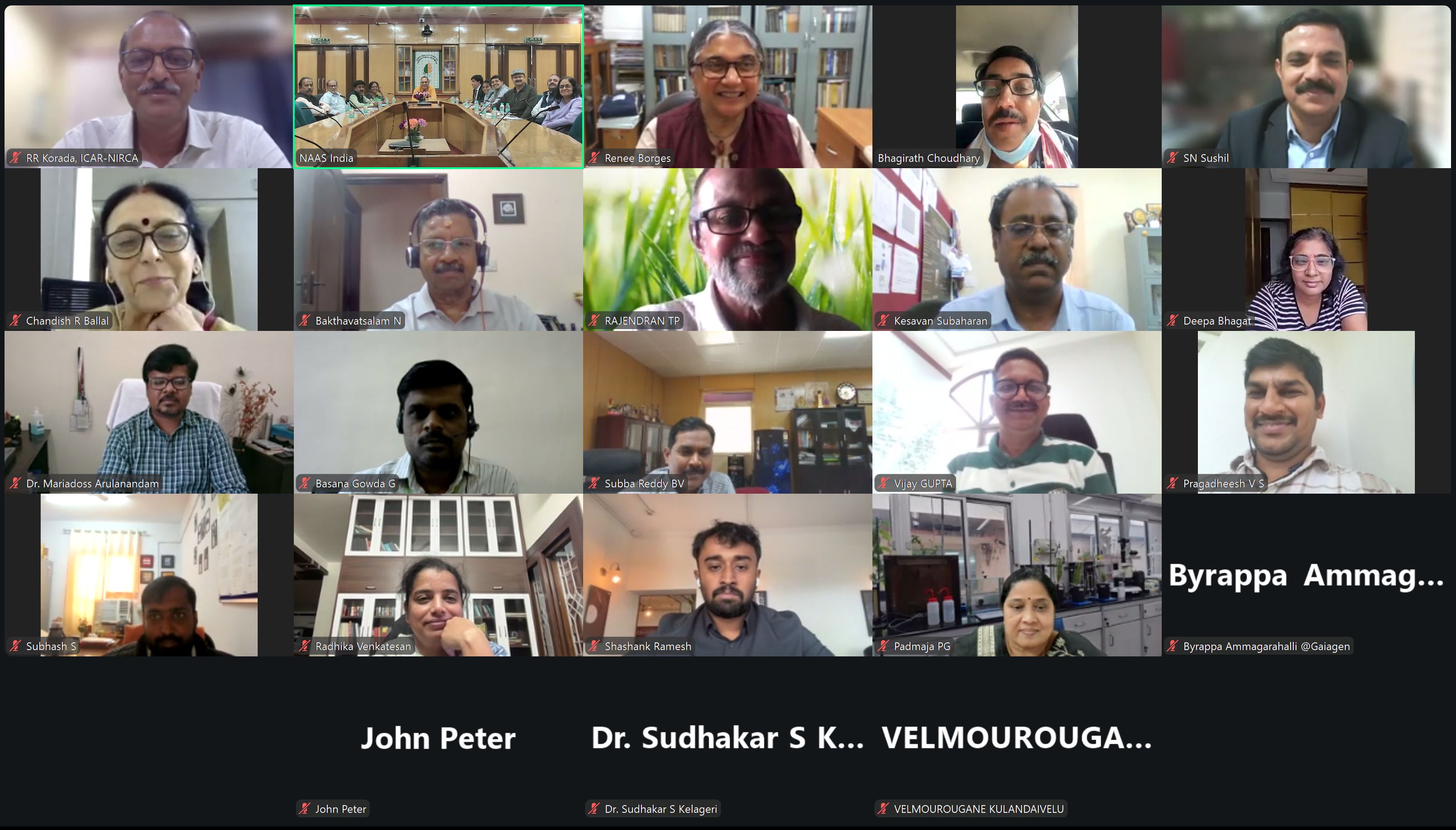Brainstorming Session
on
Semiochemicals-Driven Strategies for Sustainable Pest Management in Indian Agriculture
November 21, 2025
The National Academy of Agricultural Sciences (NAAS) organised a brainstorming session on “Semiochemicals-Driven Strategies for Sustainable Pest Management in Indian Agriculture” in hybrid mode on November 21, 2025. The session was chaired by Dr. Ashok K. Singh, Secretary, NAAS, and convened by Dr. P. D. Kamala Jayanthi, ICAR-National Professor, ICAR-IIHR, Bengaluru.In his welcome address, Dr. Ashok K. Singh highlighted the growing importance of semiochemicals in developing long-term, sustainable pest management strategies. Dr. Kamala Jayanthi then delivered a thematic presentation on “Semiochemicals-Driven Strategies for Sustainable Pest Management in Indian Agriculture.”This was followed by a panel discussion featuring national and international experts from academia, government, and industry. Participants shared their perspectives on current challenges, emerging opportunities, and the way forward for mainstreaming semiochemicals in Indian agriculture. The deliberations aimed to collectively outline the roadmap for strengthening semiochemical-based pest management in the context of Indian agriculture. Experts from ICAR, IISc, CIB&RC, IICT and NIPHM, several universities and organizations, industry partners, farming communities, students, and NAAS Fellows actively participated and contributed valuable insights.Dr. Renée M. Borges referred to the recently submitted White Paper on semiochemicals to the PSA and the Ministry of Agriculture, emphasizing the need for sustained follow-up. She highlighted the proposal for establishing a National Mission on Semiochemicals. Dr. H. C. Sharma pointed out that synthetic pheromone blends may exhibit reduced effectiveness when mating disruption is applied to polyphagous pests.Dr. S. N. Sushil stressed the need to shift the regulatory oversight of semiochemicals from CIB&RC to a more suitable framework, especially considering issues such as traceability. Dr. T. P. Rajendran emphasized the importance of assessing the biological efficiency of pheromone-based interventions.Dr. P. K. Chakraborty reiterated that pheromones should remain outside the purview of the Insecticides Act, since they do not possess insecticidal properties.Dr. Subhash Chand, Secretary, CIB&RC, stressed the need for clear standards, quality control, and robust regulatory mechanisms for semiochemical products.
The discussions covered a wide range of themes, including advances in semiochemical discovery and development, field deployment strategies, integration with agroecological practices, synthesis and formulation technologies, and the regulatory and policy landscape. Participants also highlighted the need for intensive research to identify new behaviour-modifying cues; addressing commercialization barriers; strengthening public–private partnerships; and enhancing farmer awareness. The importance of upscaling production, ensuring quality control, resolving procedural hurdles during CIB&RC registration, securing strong regulatory support, aligning with global guidelines, improving cost-effectiveness and field efficacy, exploring dedicated funding opportunities, and establishing efficient traceability systems was also underscored.The session concluded with closing remarks by Dr. A. K. Singh, Secretary, NAAS, followed by a formal vote of thanks.


© National Academy of Agricultural Sciences, 2016. All Rights Reserved.